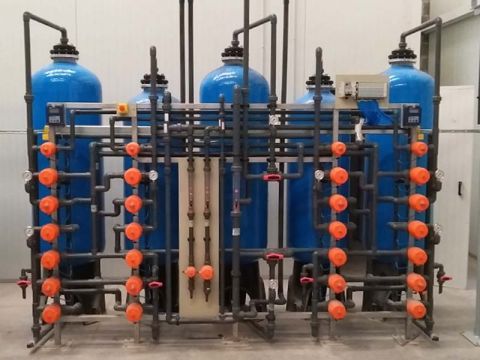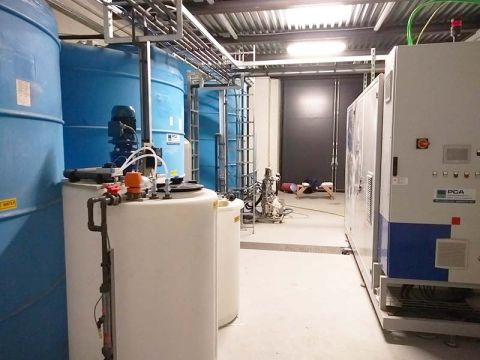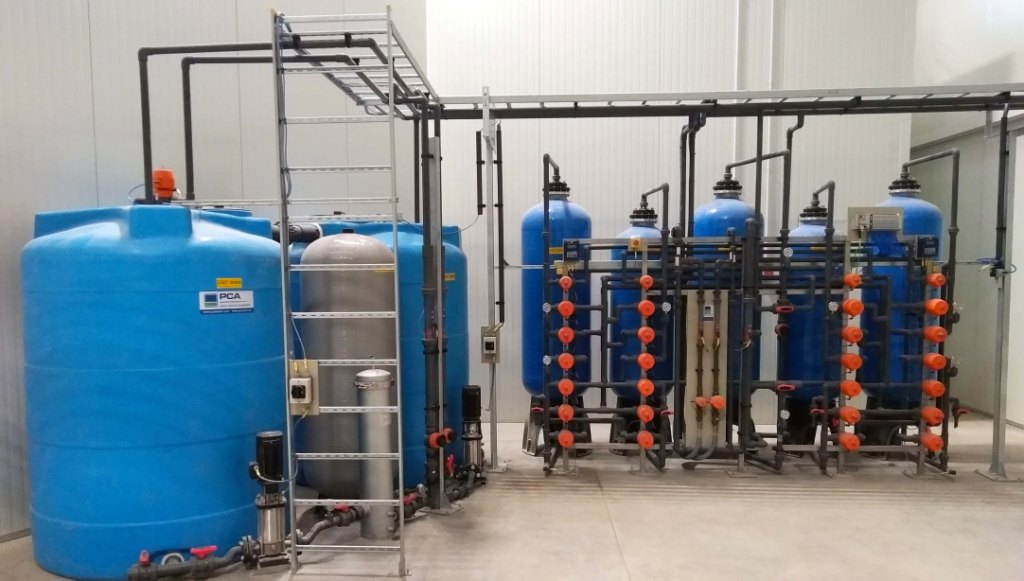Zero discharge of waste water at Corradi
Corradi is an Italian manufacturer of 'outdoor living' (which is part of the international Renson group), located in Bologna. For the construction of terrace coverings it mainly uses aluminium as a sustainable resource. But aluminium requires a pre-treatment before it can be painted or processed. As part of their acquisition by Renson in 2015, they decided to invest in a new production unit, with a sustainable water purification system. With the help of PCA, they succeeded in drastically reducing both their input of process water and their discharge of waste water. We designed a tailor-made system for them that combines a vacuum evaporator with an ion exchanger in a closed circuit.
Vacuum evaporator
The pre-treatment of aluminium requires a lot of water. Part of it is concentrated waste water that is traditionally treated in a physico-chemical way. The ecological water treatment installation at Corradi uses a vacuum evaporator instead. This heats the water via underpressure to a temperature of 85°C. The water evaporates and then condenses. This way, 90% to 95% of the wastewater is converted into distillate that is reused as process water. The remaining 5 to 10% concentrate contains all the polluted components and is collected separately for external treatment. The vacuum evaporator therefore ensures that we can reuse almost all of the waste water and thus require a significantly smaller supply of fresh water.
Ion exchanger
During the final stages of pre-treatment, demineralised water is used to rinse the aluminium. Thanks to a closed circuit, the ion exchanger ensures a continuous flow of demineralised water. The contaminated demin water from the pre-treatment line is demineralised by the ion exchange system and prepared for reuse. There is no loss of water.
When the resins are saturated, they need to be regenerated. Recycled water from the evaporator is used and after regeneration this water is purified again by the evaporator.
The combination of vacuum evaporator and ion exchanger results in a zero discharge of waste water.
Such an installation has a slightly higher price tag than the physico-chemical solution, but the extra benefits more than make up for this. First of all, you need fewer chemicals and no more filter press. In addition, you save on daily operational monitoring and therefore also on working hours. Finally, you no longer have to discharge waste water. This avoids having to pay taxes and limits the water purchase required for the production process.
PCA carries out further process follow-up of the installation and advises on annual maintenance.
Are you looking for a sustainable alternative for your physico-chemical water treatment? Or do you need a different type of water treatment installation? Then contact us and discover a custom solution for your problem.



